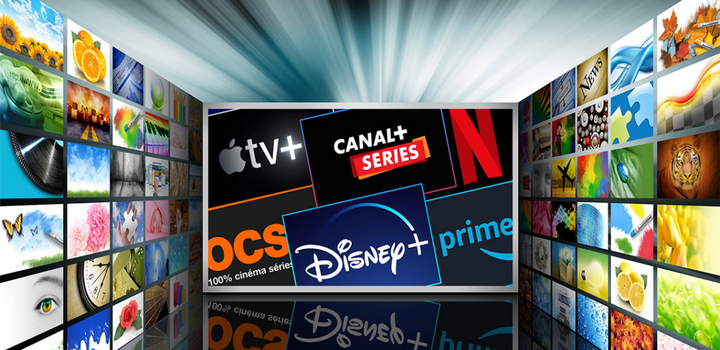In recent years, the way we consume television has undergone a seismic shift, with Internet Protocol Television (abonnement iptv) emerging as a leading force in this transformation. This article delves into the intricacies of IPTV, exploring its functionality, advantages, and the future of television viewing.
What is IPTV?
IPTV stands for Internet Protocol Television, a system that delivers television programming and other video content through the Internet. Unlike traditional cable or satellite television, which transmits signals through physical cables or satellites, IPTV uses the same technology as the Internet to stream content directly to viewers. This system allows users to watch live TV, on-demand videos, and even access interactive features via a broadband connection.
How Does IPTV Work?
The functionality of IPTV is relatively straightforward. When you subscribe to an IPTV service, you receive access to a set of channels or a library of content that can be streamed through a compatible device, such as a smart TV, computer, or streaming box. Here’s a basic breakdown of how IPTV works:
- Content Acquisition: IPTV providers acquire the rights to broadcast television channels and video content.
- Encoding: The video is encoded into a digital format, compressing it for efficient transmission over the Internet.
- Streaming: The encoded content is then streamed to users through a network of servers, ensuring that viewers can access it on-demand or in real-time.
- Delivery: Users access the IPTV service via a dedicated app or set-top box, allowing them to browse through channels or content libraries.
Types of IPTV Services
IPTV services can be broadly categorized into three main types:
- Live IPTV: This service allows users to watch live broadcasts of television channels. It often includes features such as pause, rewind, and record, enabling a more flexible viewing experience.
- On-Demand IPTV: Users can access a library of movies and shows at their convenience. This service mimics the functionality of platforms like Netflix or Hulu, allowing users to watch content whenever they wish.
- Time-Shifted IPTV: This type allows viewers to watch previously aired content, usually within a set timeframe. Users can catch up on missed episodes or shows at their convenience.
Advantages of IPTV
IPTV offers several benefits that contribute to its rising popularity:
- Flexibility and Convenience: Users can watch content on various devices, including smartphones, tablets, and smart TVs, offering unprecedented flexibility in viewing.
- Cost-Effectiveness: Many IPTV services are more affordable than traditional cable subscriptions. Users often have the option to customize their channel packages based on their preferences.
- Enhanced Features: IPTV often includes features like video-on-demand, catch-up TV, and interactive content, providing a richer viewing experience.
- Content Variety: Users have access to a wider range of channels and on-demand content, including international programming, niche channels, and user-generated content.
Challenges and Considerations
While IPTV presents numerous advantages, it also comes with challenges:
- Internet Dependence: A stable and high-speed internet connection is crucial for optimal IPTV performance. Poor connectivity can result in buffering and lower-quality streams.
- Legal Issues: Some IPTV services operate in legal gray areas, providing access to copyrighted content without proper licensing. Users must be cautious and ensure they choose legitimate providers to avoid potential legal repercussions.
- Quality of Service: Not all IPTV providers offer the same level of service. Variability in streaming quality and reliability can be an issue, making it essential for users to research and choose reputable services.
The Future of IPTV
The future of IPTV looks promising, with advancements in technology paving the way for even more innovative viewing experiences. The rise of 5G technology is expected to enhance streaming capabilities, reducing latency and improving content delivery. Additionally, the integration of artificial intelligence and machine learning will likely lead to more personalized content recommendations and improved user interfaces.
As consumers continue to seek flexible and affordable viewing options, IPTV is poised to play a significant role in the ongoing evolution of television consumption. With its growing popularity, the landscape of entertainment is transforming, encouraging traditional broadcasters to adapt and innovate to stay relevant in this digital age.
Conclusion
IPTV has emerged as a game-changer in the television industry, offering viewers a new way to consume content that is flexible, cost-effective, and rich in features. As technology continues to evolve, IPTV’s role in shaping the future of entertainment will undoubtedly expand, making it an exciting area to watch in the years to come.

